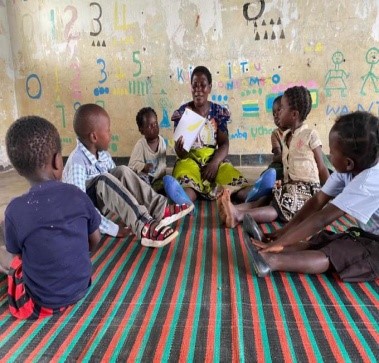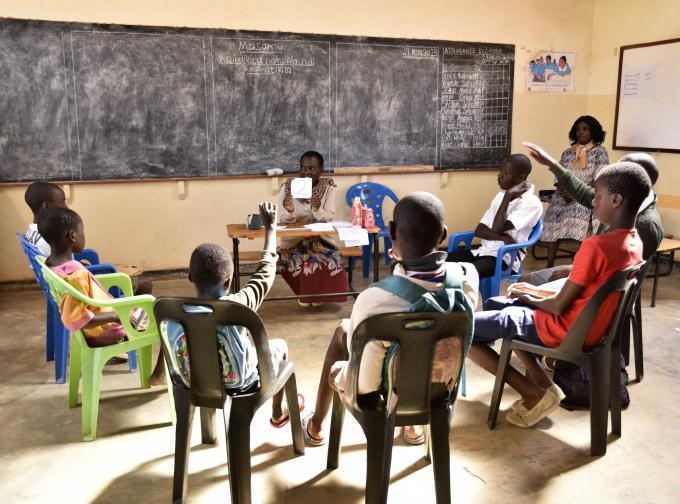PIDERS Collaborate to Enhance Inclusive Education and Literacy in Babati – Manyara region
Early Childhood Development Campaign
Campaign Objectives
•Increase public understanding about the importance of ‘Early Childhood Development’, especially on how the first 1,000 days represents a unique window of opportunity for investing in children’s cognitive and physical development.
•Provide and engage parents and caregivers with information and resources for positive parenting and responsive care giving.
•Engage decision makers to win support for commitment to ECD programs and scale up integrated ECD services in Tanzania
The importance of early childhood development
The foundation laid in the first years of life is critical in shaping health, education, and social and economic outcomes for the duration of a person’s life. Early childhood is the period most critical for brain development.
Investing in early childhood health, nutrition, care, and learning programs, including parenting support programs, community-based childcare, center-based provision, and formal pre-primary education, yields high economic returns and offsets disadvantage and inequality, especially for children from poor families.
Early childhood development in Tanzania
In spite of its importance for brain development, school readiness, resilience and wellbeing, ECD, including care, stimulation, and learning, ECD has not received adequate attention in the country. Parents are not provided with the information or support necessary to develop responsive and positive parenting skills. About 40 per cent of children aged three to five years are enrolled in early learning and care centers, mostly Community-Based Childcare Centers, which lack the resources and capacity to provide quality services.
Challenges
•Only 48.7 per cent of children in Tanzania have access to ECD centers
•Only 17 per cent of children aged three to four years are developmentally on track in literacy and numeracy.
•More than 50 per cent of ECD caregivers lack skills on standard ECD package and the entire care giving workforce at ECD centers works on volunteer basis, which has an impact on the quality and sustainability of the services. There is an urgent need to support training of adequate caregivers to provide required quality ECD services to all children.
•To achieve holistic Early Childhood Development, it is critical to provide continuum of care, as evidence have shown that in Malawi 35 per cent children are stunted; hence they don’t reach to their potential and ultimately will not be able to effectively contribute to the country’s development.
working closely with Ministry of Gender, Community Development and Social Welfare, and the Ministry of Health to achieve an integrated Early Childhood Development agenda. The aim is to have more than three million children aged zero to five in Malawi benefitting from nurturing, care, early stimulation, positive parenting, and responsive care giving services. UNICEF is supporting the expansion of Integrated ECD services through various platforms, including Community Based Child Care Centers (CBCCs), community care groups, and health facilities. Furthermore, UNICEF provided technical assistance to the Government of Malawi in developing and implementing the National Integrated ECD Policy and Strategic plan 2018-2023. UNICEF also plans to support ECD services delivery through construction and upgrading/equipping ECD Centers to deliver a holistic package.
In 2021, through UNICEF support, a total of 4,905,609 parents and caregivers increased their knowledge and skills on Early Childhood Development (ECD), health, HIV, and nutrition leading to improved early stimulation, nutrition, and positive parenting practices and responsive care giving and quality of diets for 347,725 children between 0-23 months. Moreover, 864,654 parents and caregivers were reached through parenting program using different platforms, such as home visits and community radios.
What is PIDERS and other development partners are doing to address the challenges


Become a volunteer
Join us for a better life and beautiful future
With our partners, we work with and empower marginalized groups and households to enable them to have the capacities
to improve their livelihoods.

